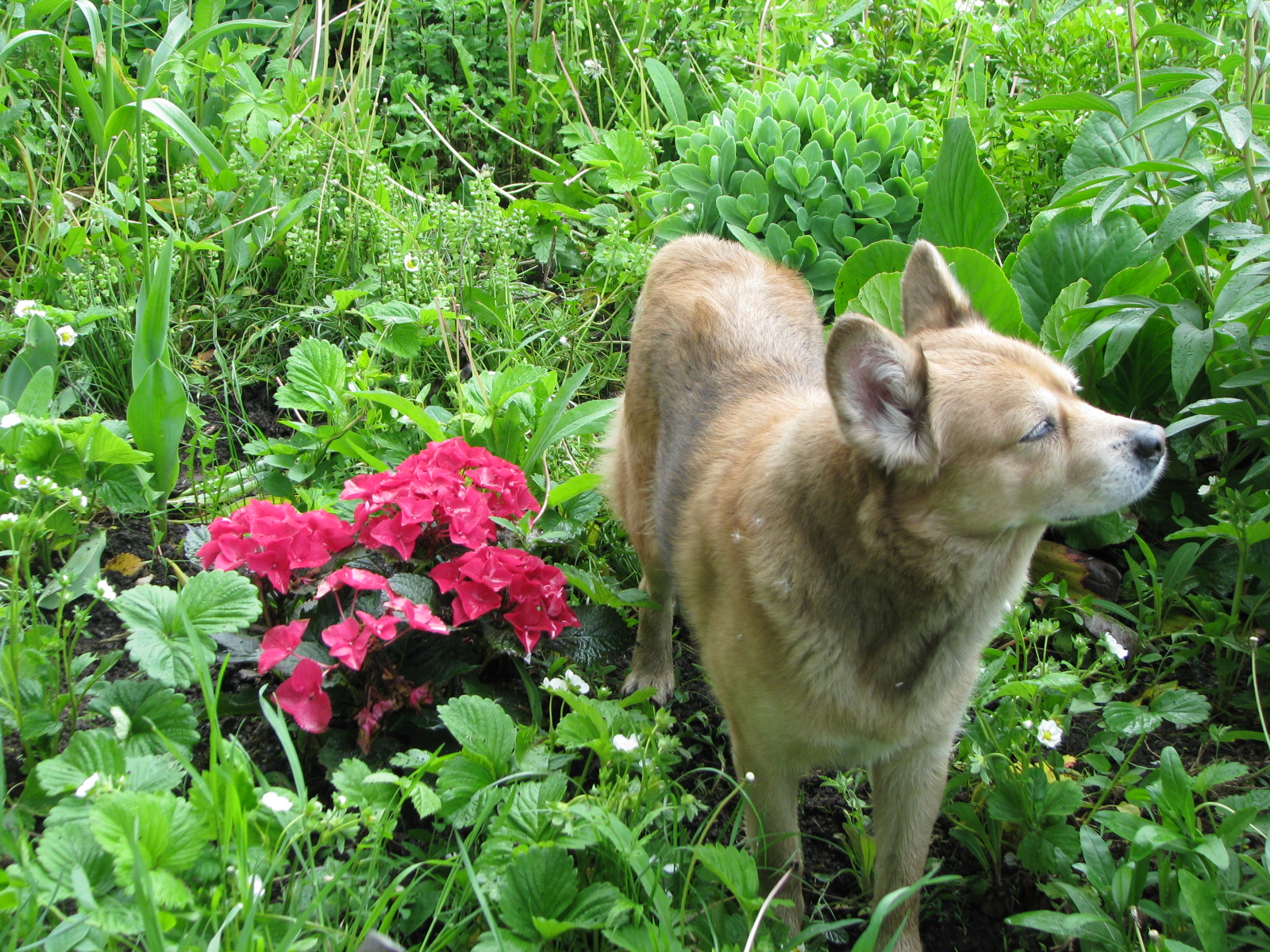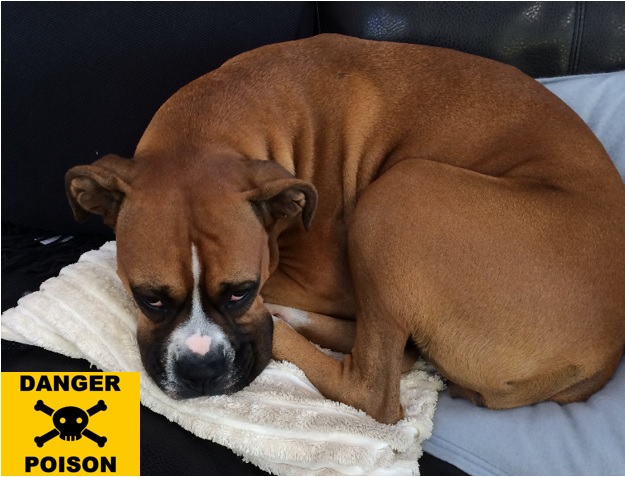
Making A Dog Training Cue A Punishment
(Updated 2020)
Poisoning anything sounds dangerous which is why so many dog trainers and clients don’t realize or want even to think that they may have poisoned their dog training cues. The good news is, it won’t kill you or your dog. The bad news is, your dog gets confused, tops responding to you, and is stressed.
Poisoning a cue is not something you want to do if you want your dog to be obedience trained.
Here are all of the dog training equipment, collars, harnesses and pet products that we recommend
If your dog trainer or behaviorist use dog training jargon to describe behaviors, theories, and the science of behavior (ethology) ask what they mean.
In laymen’s terms, poisoning a cue simply means that your dog associates the word (cue) you are using to mean a different thing (Usually associated with punishment). And hence doesn’t listen to you.
When a dog is punished, uncomfortable, scared, in pain, etc. they may associate anything and everything they are perceiving at that moment (equipment, behavior, cue, food, person, and/or environment, etc.) with the punishment and they all may become associated with (aka, predict) the punishment.
Poisoning also means your cue is no longer reinforcing to the dog. Somewhere along the line, your cue was paired with a punishment/aversive (according to your dog).
Cue Poisoning When Dog Training
I’ll focus on the cue Come because it is likely the most common poisoned cue for families. This is because Come is used so much in everyday vernacular that parents typically are not thinking about the context of their cues when using them.
I should back up and define Cue. You might be more familiar with the training word “Command”, however, since we are not autocratic dictators, commanding or bossing anyone around like reality television hosts, we use more accurate, compassionate, and up-to-date dog training terms.
Dog training is about building a trusting and loving relationship with our dog. A dialogue where we ask questions and a dog answers by performing a behavior on their own volition because they want to, not because they are fearful or forced.
Dialogue dog training is the way to train and develop a deep bond and strong long-lasting relationship with a very interested, alacritous, and responsive dog. “Commands”, on the other hand, convey a monologue with force and dominant, subordinate relationship without recognizing another sentient beings’ autonomy, voice or choice.
The term Command went out of fashion with the term dog “owner” in the 1950s when dogs were incorrectly referred to as, “Alpha” and dominant pack animals.
Since a poisoned cue simply means that the word you are using is no longer reinforcing for the dog, it’s nothing to worry about.
However, you may be asking yourself, how did that happen? I give my dog the healthiest and best dog treats, I train with my dog every week, I’m very studious, we go for daily dog walks, get plenty of exercise and he has the best dog beds and toys a parent can buy. I love my dog, why doesn’t he listen to me and how have I poisoned the cue?

Poisoned Cue Examples
Here are dog training examples that may offer some clarity on where and when you may want to improve your communication with your dog to avoid poisoning a cue or to identify where you went astray.
Here are very common training examples where a cue is paired with an aversive. AKA, when a dog learns not to listen to a parent.
- Parent: Come Rover!
- Dog: Comes to the parent (parent doesn’t reward the dog for Coming), and then the dog is immediately brought inside the home (punishment).
Next time the parent asks a dog to come:
- Parent: Hey dog, come here, please. Dog, hey, I’m talking to you. Hey dog, listen to me when mommy calls you come! Come please, come, come, come, COME NOW!
- Dog: Ignores parent.
A parent might think their dog is stubborn, obstinate, or untrainable. But the reality is the parent does not understand how a dog learns.
Here are some other ways the dog training cue, Come, has been poisoned
- You might be puppy potty training and take your dog for a morning walk to the dog park or let your dog out in the backyard. But you’re busy and have to get to work. While your carrion dog is blissfully digging up some carcass to present to you as a gift or busy reading his peemail on a tree or performing some other high rewarding activity, you call him in a stern voice, “Rover come!” and relegate him to his bed, the car, or a boring house in which he sits depressed, under enriched and unemployed for hours on end, sigh.
- Bathtub time – Time to clean your dog in the bath, and make him smell like lavender! You call your dog for his bath, “Rover come.” Your dog drops eating his favorite elk antler, chew toy or dog toy, runs to you, and sees the bath and the water. Hating the water and scared of the noise the faucet makes, your dog is being punished for coming to you.
The next time you call your dog for a bath, both of you are upset and you have to trick your dog and chase him down, raise your voice and call him three times to get him to come. Sunken down he mopes over to you or tries to hide under the coffee table or in his dog crate.
- It’s that time of year, Muffy needs to go to the veterinarian to get her checkup, so you call your dog to the car, and your dog looks at you and runs. The only time you ever take her for a ride in the car is when you go to the veterinarian’s office or something punishing so now your dog associates anything with the car as a punishment.
- It’s a warm summer day. You take your dog for a walk in the city and ask your dog to sit on the hot pavement. Your dog burns her butt when she sits. Now she associates the cue “sit” with pain.
- Your dog is shredding her favorite toy to bits and is at risk of ingesting it. Daddy yells, “Come!” Lassie comes over to you, and you yank the toy out of her mouth and then go back to reading your favorite book. Now your dog won’t come at all next time.
- Cues that have been trained with a dog using punishment or euphemistically called “corrections” have a high degree of being poisoned. Why? Because the dog is not rewarded and does not look forward to the consequence, being punished (leash popped, neck yanked, ribs poked, butt forced down or being physically manipulated).
When have you ever been forced to be friends with someone or bullied by your best friend? Dogs don’t like bullies any more than people do. For this reason and many more, it is not recommended to hire a traditional “trainer” and stay far away from inclusive pet and dog training organizations who use, recommend or include “trainers” that use choke chains, shock collars, or pronged collars or force. Dog’s shouldn’t be pushed into positions, bullied, or intimidated. A dog will likely become emotionally, psychologically, and behaviorally damaged and shut down (learned helplessness).
7. If a dog is confused because a parent is not clear, concise, and consistent and a dog gets punished for his/her perceived intractability, this could also lead to a poisoned cue.
Eureka! Now that you have seen where you may have gone awry, what should you do now?
Poisoned Cue Solutions
Awareness and knowing your dog’s hierarchy of rewards are both imperative to being able to effect change. Without knowing this, nothing will change.
In the examples above, what are the consequences of your dog’s behavior (Coming)? Punishment.
This is an easy fix. Make sure the consequences for your dog’s behavior will be something incredibly more positive for your dog and/or better than what they were previously doing.
Does your dog enjoy (immensely) what immediately precedes the cue “Come” or is “Come” punishing (for them)? The key is knowing what your dog thinks is awesome and punishing and what consequence is immediately associated/paired with the cue.
Your dog doesn’t care if you are late for work, or you called him over because you have been in the park for 3 hours already. Or that you pulled him out of the lake to take a nap.
What you are associating with the cue has to be more rewarding than what he was previously doing, or else kiss that cue goodbye and consider it poisoned.
However, once a cue is poisoned, it may take a long time to recondition the same cue. Instead theirs a simpler solution.
Change the cues. Instead of using the word “Come” use “Here,” “Now,” “Side,” or any other fun word you like. Instead of calling a dog to do something they may not like, like bathing, turn it into an awesome event like lining the inside of the tub with peanut butter and squirt cheese and let them lick the tub as you scrub them clean.
If you don’t want to put cheese or peanut butter all over your tub use a sticky mat that attaches to your wall or tub.
Poisoning A Dog Training Cue Is Easy
Being constantly aware, thinking like a dog, and knowing your dog’s hierarchy of rewards is not something that comes naturally to people. Your dog does not rationalize why you took away their toy or yanked them from the dog park.
Remember all functional assessments start with your ABCs, Antecedent, Behavior, Consequence. Always begin with defining the behavior operationally, without labels, and then move to the antecedent and lastly the consequence. Antecedent stimuli or cues signal or set the occasion for the behavior to occur. As such they are part of the Antecedent, Behavior, and Consequence (ABC) relationship of a functional assessment.
The solution is rather simple: invent a new cue (nonverbal and verbal communication) to signal the same behavior you would like to elicit.
The solution, as with many life solutions is awareness and consciousness of your body language and communication and understanding your dog’s reward system. Understanding what your dog perceives as a punishment/reward and respond accordingly by actualizing training events and appropriately rewarding consequences. This will keep you from poisoning cues and keep your dog responding reliably for the rest of his life.
Here are all of the dog training equipment, collars, harnesses and pet products that we recommend
Love Fun Paw Care and want to go steady?
Subscribe to our blog today and sign up for our bi-monthly newsletter


Leave a Reply